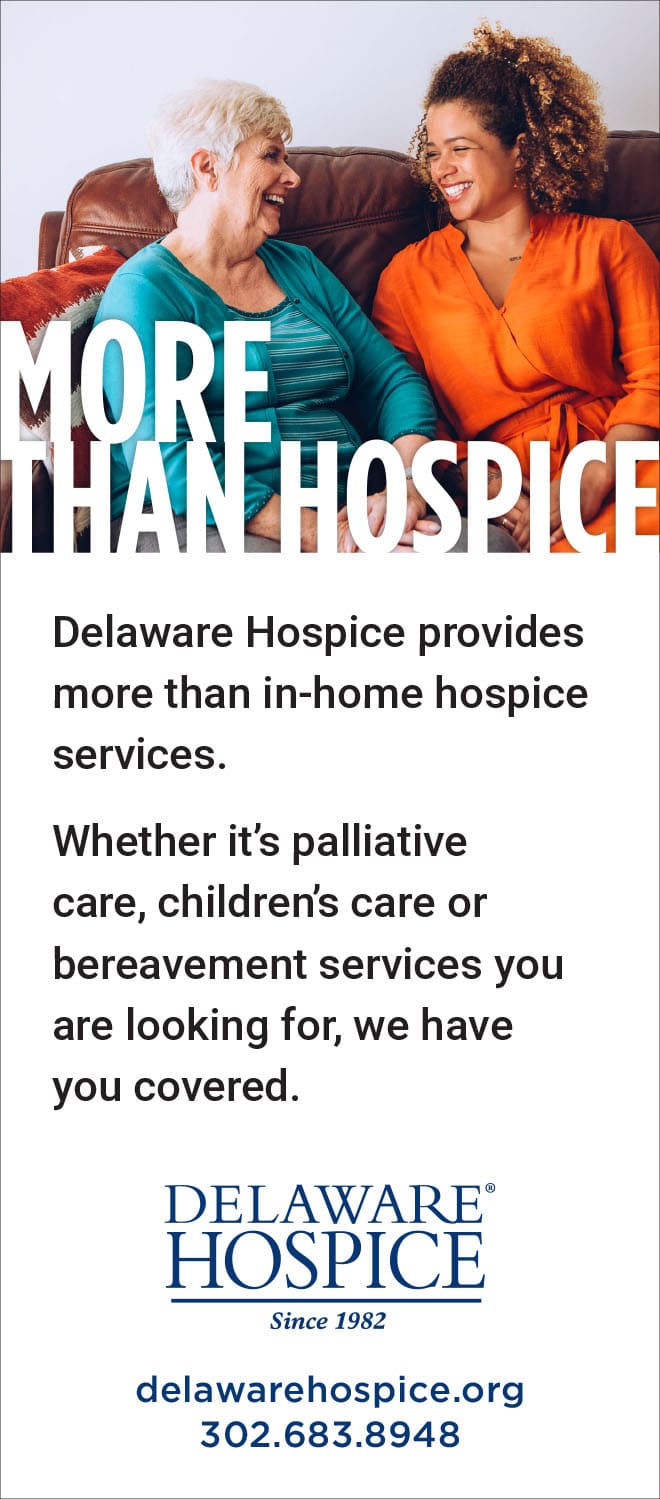Palliative Vs. Hospice: What’s The Difference?
Mike panicked when his mother declared she was planning to enroll in palliative care. She hadn’t mentioned a terminal prognosis before! But Mike’s wife quickly put his mind at ease. She’d been through this before, and she knew the difference between palliative care and hospice care — and the benefits of both.
Unfortunately, confusion about the difference between palliative care and hospice care is quite common. And the myths surrounding both can sometimes keep people from getting the help they need.
Both palliative care and hospice care can help patients and their families thrive in the face of serious illness by providing holistic in-home support. They both focus on managing pain, symptoms, and anxiety while offering practical knowledge, resources, and assistance to make the journey smoother. And they’re both available to anyone at any age.
Here’s how the two types of care differ in a couple of key areas:
Palliative Care (Delaware Palliative)
Stage of disease/condition: Palliative care supports patients throughout any stage of a serious illness, such as cancer, congestive heart failure, COPD, ALS, Parkinson’s disease, Alzheimer’s disease, or kidney failure.
Pursuit of a cure: Palliative care is available to patients while they receive treatment aimed at a cure.
Type of support:
- Symptom management support
- Coordinate and communicate with your physician
- Emotional and spiritual support
- Education about end-of-life care
- Transitioning from hospital to home
- Resource management support
- Assistance with lifestyle changes
- Companionship, assistance, and/or transportation
- Individualized plan of care
Your team: Social Worker, Service Coordinator, Nurse Practitioner
For more information on palliative care, please visit www.delawarepalliative.org.
Hospice Care (Delaware Hospice)
Stage of disease/condition: Hospice care is specifically tailored to patients with a life expectancy of approximately six months or less.
Pursuit of a cure: Hospice care supports patients who have made the decision to forego further curative treatment and pursue comfort measures instead.
Type of support:
- Symptom management support
- Coordinate and communicate with your physician
- Emotional and spiritual support
- Education about end-of-life care
- Transitioning from hospital to home
- Specialized 24-hour care (continuous care)
- Respite care
- Resource management support
- Assistance with lifestyle changes
- Companionship, assistance, and/or transportation
- Individualized plan of care
Your team: Nurse, Social Worker, Certified Nurse Assistant (CNA), Trained Volunteers, Medical Director, Nurse Practitioner, Bereavement Counselor, Chaplain
For more information on hospice care, please visit www.delawarehospice.org.
In either case, patients continue to receive care from their own doctor.
When it comes to kids with a serious illness, there is no distinction between palliative care and hospice care, because even in the most difficult circumstances hope for a cure often remains alive. Children at any stage of any serious illness, whether they’re receiving curative treatment or not, can benefit from the expertise of pediatric palliative and hospice care specialists like the caring team members in our Katybug pediatric program. Even prenatal care is available to support families awaiting the birth of a baby diagnosed with a serious condition. Pediatric specialists are experienced in walking alongside children and their families during these tough times, so the family can focus on each other instead of the child’s illness.
Delaware Hospice is more than just hospice care. We give you the freedom to focus on what matters most. Our compassionate experts take a holistic approach to helping you manage the symptoms and practical details that come with a life-limiting illness. We reduce the daily stress and anxiety of coping with the disease. As a community healthcare agency, our mission is to ensure that everyone in our community needing care receives it. Through the community’s generous support, we can help cover care and other essential needs for those having difficulty paying.
800-838-9800 delawarehospice.org


